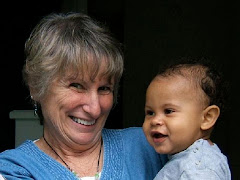Unconditional positive regard, a phrase and philosophy of relationship termed by Carl Rogers, is the "basic acceptance and support of a person regardless of what the person says or does." On my facebook page, Challenging Children, today I mention a book entitled: "Mommy, I Wish I Could Tell You What They Did To Me In School Today". And it is subtitled: "Everyday Atrocities Faced by Special Needs Children". The book is about, the real life tales of physically handicapped, special needs students. My particular experiences with challenging children in schools have been with those who are determined to have an "emotional disability" or even a "behaivor disorder". Those of you who follow this blog know that I've written in the past about both unconditional positive regard and Special Education. I have not particularly dealt with the two together. Unconditional positive regard was written about primarily in relationship to parenting. Today, I want to talk about it in relationship to schools and teaching challenging children.
It is an everyday occurrence to hear teachers yelling at students in school, to hear security officers yelling at students, to hear principals yelling at students. For the student who is "well put together" and from fairly normal life circumstances, the response will be for that student to "shape up" and stop doing whatever she/he was doing to provoke the ire of the adults in the school setting. And most likely the teacher will also respond in the next moment when the student 'shapes up" in a calm manner. Rewind the scenario and yell at a student who comes from less than ideal circumstances...perhaps even a student labeled as "special" because of an emotionally handicapped label...and the student blares back at the teacher and perhaps even uses an expletive not deleted. The teacher reacts...note reacts and does not respond...there is more yelling back and forth, the student is marched to the office or perhaps the office is called and someone of more authority comes for the student...any of you who has spent time in school recently can describe, most likely, the "rest of the story".
Now, had the teacher responded to the errant behavior of the student rather than reacted, the story would not have ended with the student being taken to the office and further punitive measures no doubt taken. Had the teacher accepted and supported his student, rather than reacted from a place of stress (and yes, fear), that teacher would have used an intervention that was quite different. And that intervention could have been to go to the student, try to find out why the student was having difficulty with a school policy/rule whatever...the teacher would have done this by listening to the student and learning what was going on. And the "incident" would have had a much different ending.
Sunday, March 18, 2012
Friday, March 16, 2012
Unconditional Love and Unacceptable Behavior
I was going to write on this today and when I went to the blog, saw that I had written on unconditional love in February...it must be a recurring theme in my work. Here is what Bryan Post had to say this morning: "Acceptance between parents and children is the unspoken agreement that within their relationship all is okay for now and forever. Acceptance does not imply that what you have done is okay but rather who you are. I accept you. There are things you may do or ways in which you behave that I disagree but underneath it all I accept you. You are my child. We will make it through. Once you accept, then you can truly love. Remember that unconditional love is love such that there is nothing that a child can do to earn it, nor is there anything a child can do to loose it."
How very powerful is this definition of unconditional love...there is nothing, nothing you, my child can do that will change my love for you. No matter how many mistakes you make, no matter how others look upon your behavior (whether that be your teachers, your grandparents, the neighbors and yes...even the authorities) I will love you and together we will get through whatever it is that is facing us. We say to our children what you are doing is not acceptable and I will help you to find another way of expressing yourself, another way of interacting, another way of communicating. Yes, I will teach you more acceptable ways...and I will do that in a loving, caring, accepting way.
How very powerful is this definition of unconditional love...there is nothing, nothing you, my child can do that will change my love for you. No matter how many mistakes you make, no matter how others look upon your behavior (whether that be your teachers, your grandparents, the neighbors and yes...even the authorities) I will love you and together we will get through whatever it is that is facing us. We say to our children what you are doing is not acceptable and I will help you to find another way of expressing yourself, another way of interacting, another way of communicating. Yes, I will teach you more acceptable ways...and I will do that in a loving, caring, accepting way.
Subscribe to:
Posts (Atom)


